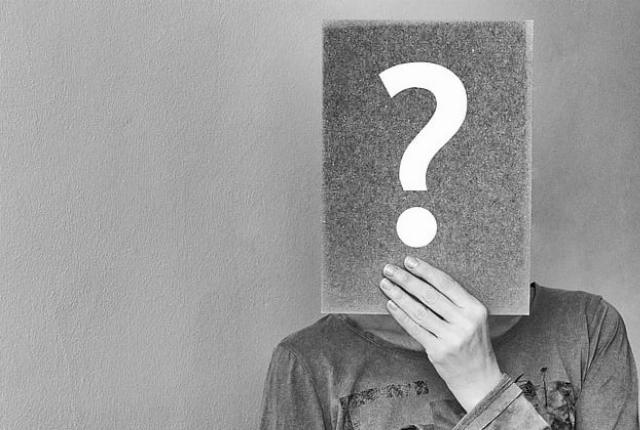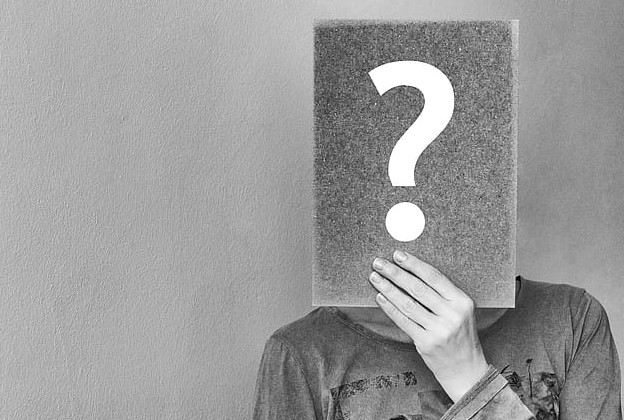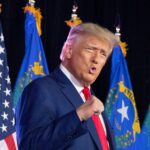

Photo Credit: Image via PickPik.
PickPik
A look at the difference between the two poles of ‘anxiety' and ‘engagement' demonstrates why our Democrat friends are so dysfunctional.Human beings interface with the world on a spectrum between the two opposing poles of engagement and anxiety. Engagement is the state of being outward-looking. It drives the spirit of exploration and curiosity that has seen humanity traverse every corner of the globe while progressing from the first controlled fire to the launching of advanced rockets. Meanwhile, anxiety turns inward. It perceives the outer world as threatening and hostile, and so proceeds to build up fortifications and defenses. From this come various avoidance neuroses, but also a certain defensive acquisitiveness, as the anxious subject seeks to fortify his position and amass his forces against a hostile and hazardous world.
The key distinction here is that the for the engaged man, the outer world is an object of interest in and of itself. Sir Edmund Hillary climbs Mt. Everest for no other reason than that it’s there. Meanwhile, for the anxious man, the things of the world are of interest only insofar as they fortify or threaten his position in the world and are otherwise not just ignored, but invisible. A hypothetical subject at the polar extreme of anxiety will, upon listening to a piece of music, look around furtively, seeking social cues. “Do I or do I not display enjoyment? What reaction is advantageous to me socially?” His engagement with the music for its own sake is nonexistent. Every interaction between him and the outside world is mediated by his immersive concern with how it strengthens or weakens his position in the world.
Once one has a grasp on the anxiety-driven consciousness, a few otherwise perplexing social phenomena become more relatable. For instance, over the last four years, since the crisis of 2020, the Democrat party’s progressive base has begun openly to advocate for censorship as a baseline policy, without any leavening pretext. This same base also advocated for aggressively authoritarian measures against COVID, with 29% of Democrat voters supporting state seizure of children from unvaccinated parents. Further, they demonstrate unshakeable trust in mass media, despite their continued forays into self-parodic propaganda.
We also see that this ideological cohort consists most disproportionately of economic, institutional, and academic elites. This gives rise to the question: why has the most accomplished cohort in America made a turn to this peculiar mode of authoritarianism, which combines covertness with sheer audacity? The strong Democrat will fiercely advocate for federal regulation of “disinformation” while at the same time denying he supports censorship. He will vouch for the veracity of mass media “news” even when presented with its mountain of falsehoods.
The solution to this paradox lies in the manner by which America selects its elite. The current institutional, academically credentialed class is a new category of elite. Earlier epochs produced hereditary elites, priestly and landed elites, martial and industrial elites, culminating in the scholarly and meritocratic elites of the mid-20th century. The modern American (really Western) elite is a new breed of Anxiety-Elite. Because this elite is anxiety-driven, it is inward-looking. It registers the outside world primarily as a constellation of prospects and threats.
This, it must be emphasized, occurs on a preconscious level. Anxiety undergirds the framework of their perceptual apparatus. It determines simultaneously how they perceive and what they perceive. This is not cynicism, as there is no calculation, no effort to deceive. This elite perceives whatever is to his advantage as truth itself.
Hence, when evaluating the prospect of mass censorship, the Anxious Elite perceives a relief from a potential threat. A world where correct opinion is straightforwardly delivered to him is easier to navigate. A world where reality has to be negotiated is perilous. There is a risk that one is wrong (note that wrong is perceived not in metaphysical terms, but as being on the losing side).
The anxiety of the new elite also yields insight as to its continued trust in mass media. Mass media are always “right” despite flagrant inconsistencies, errors, and outright lies, because they remain a signal of institutional authority, hence they remain a repository of “correct” information and views.
Again, the anxious subject, while capable at an abstract level of distinguishing between the categories of “true” and “socially expedient,” cannot perceive this distinction at the level of his personal, visceral commitments. That which is expedient registers in his mind automatically and unshakably as “true.” Because the anxious subject is inward-looking, he does not perceive outside reality as an object of inquiry in its own right. He has no conception or concern for the truth of a proposition in the abstract so long as there is any personal implication.
The Anxiety Elite comes into being with the degeneration of “meritocracy.” This degeneration comes with the extreme academic institutionalization of the vehicles for American social advancement. Academic institutions, starting from the later primary grades, cease to present activities of any intrinsic value. The curriculum does not reward, and increasingly punishes, any genuine interest in any subject matter. What the elite aspirant comes to understand is that his continued advancement in the institutions of managed upward mobility depends on his punctual, well managed completion of make-work, along with demonstrations of sundry résumé-building “activities” that have no value outside their formal requirement for upward mobility. As such, the curriculum selects for prospects who are inward-looking, who thrive under conditions where it is assumed that the environment consists of nothing except fodder for personal gain. The qualities selected by this advancement mechanism are those of the Anxious Subject, and those who excel most are precisely those nearest the pole of anxiety.
A spirit of engagement in such environments is functionally a liability and must be suppressed. Explorers are by nature restless when placed on a life course that is functionally a competitive conveyor belt; they are the first to drop off, regardless of their intelligence or talent. Further, the profusion of academic credentialing requirements for ever more areas of productive work curtails the potential avenues of advancement for those who are more exploratory in their nature.
The arrest of progress in several fields — the decline of medicine, education, the arts, cinema, literature, education, politics — is indicative of the dysfunction of the anxiety-driven pseudo-meritocracy. Although a relentless focus on personal advancement will reliably lead to success in careerist terms, in order to drive progress, in order to create anything novel, original, or beautiful, one must at some point engage with one’s professional domain on its own terms, for its own sake. Producing “right answers” reliably can advance one’s career, but making progress, by definition, requires moving past the “right answers” and working with a genuine interest in the stuff itself.
The inability of our current elite to do this only heightens their sense of inadequacy, rendering their sense of their own station precarious. As such, they will continue to insist on authoritarian measures that will ensure that the “right answers” they are so adept at parroting will remain “right,” so that they will not be displaced by a meritocracy of legitimate competence.
<img alt="
Image via PickPik.
” captext=”PickPik” src=”https://conservativenewsbriefing.com/wp-content/uploads/2024/09/the-anxiety-elite.jpg”>
Image via PickPik.






